Victoria bans gas connections in new homes from 2024
A ban on gas connections for new homes in Victoria will come into effect from next year, meaning all new homes will be powered entirely by electricity.
Victoria
Don't miss out on the headlines from Victoria. Followed categories will be added to My News.
Every new home in Victoria will be banned from connecting to gas from next year.
Energy Minister Lily D’Ambrosio and Planning Minister Sonya Kilkenny announced new homes would go electric from January 1, 2024.
The ban will mean new homes will be powered entirely by electricity, with electric or induction cooktops to be installed instead of gas ones.
It will apply to new homes and residential subdivisions requiring a planning permit.
Public and social housing delivered by the government’s Homes Victoria scheme will also be affected by the gas ban. And all new public buildings that haven’t reached design stage — including schools, hospitals, police stations and other government owned facilities — will also be fully electric.
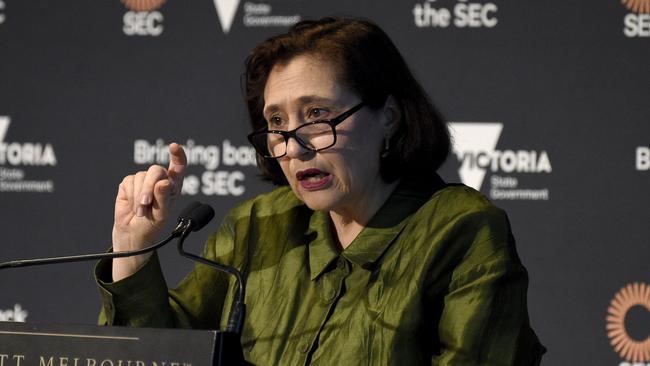
The government said the change would shave about $1000 from household energy bills each year.
The ban will not apply to commercial properties.
The government has pledged $1m to the construction industry to set up a targeted training program for tradies to swap over appliances.
Victoria is the biggest residential gas user in Australia with around 80 per cent of homes burning the fossil fuel for either cooking, heating or hot water.
Ms D’Ambrosio said reducing the state’s reliance on gas was critical to meeting Victoria’s emission reduction target of net zero by 2045.
She said getting Victorians on more efficient electric appliances would lead to big savings on bills.
“We know that with every bill that arrives, gas is only going to get more expensive,” she said.
“That’s why we’re stepping in to help even more Victorians get the best deal on their energy bills.”
Ms Kilkenny will amend the Victorian planning provisions to make the changes.
The state government in July released its first Gas Substitution Roadmap in July, in which it removed the requirement for all new builds to be connected to the gas network.
At the time, Ms D’Ambrosio said it was “time to put gas on the backburner” citing its price spike in the wake of Russia’s invasion of Ukraine.
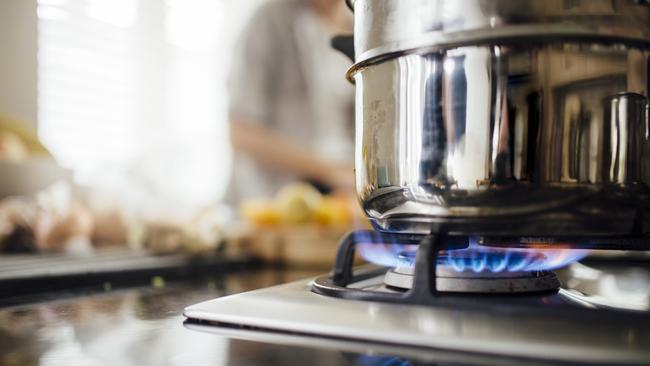
‘Desperate policy on the run’
The state opposition has claimed the ban will lead to higher energy bills by driving up demand for electricity.
Shadow Treasurer Brad Rowswell said gas should remain an important part of the energy mix as we transition towards renewables.
But he warned the changes were a case of “desperate policy on the run”.
“We know when the Andrews Labor government executes desperate policy on the run, it’s not them who take responsibility or pay the price — but every Victorian pays the price,” he said.
“What the government has done today, with little to no notice, has imposed upon every Victorian family, and every Victorian household, higher energy costs at a time when they can least afford it.
“We need a sensible transition, not panic decisions that restrict choice and lead to higher energy prices.”
Meanwile, deputy Greens leader Ellen Sandell welcomed the move but said such reforms would be undermined while the government backed coal and gas projects.
“Victorians use more gas in their homes than in any other state, so banning new connections is an important reform the Greens have been calling for for years,” she said.
“But it is strange that Labor acknowledges gas is an expensive, polluting fossil fuel on the one hand, while on the other hand is changing the law to make it easier to open new mines and is approving new gas drilling across the state, including near the 12 Apostles.”
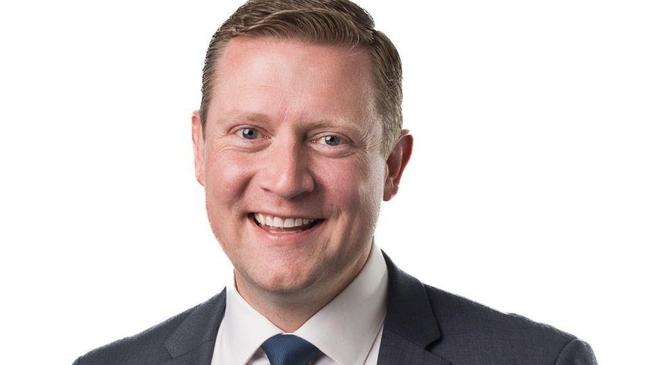
‘Nation likely to follow’
The Australian Industry Group, which represents appliance manufacturers, has warned Victoria’s ban will likely be adopted in other states.
“The government has now made the call that electrification is the path ahead for households, at least.
“Victoria is the largest residential gas market and where it goes, the nation is likely to follow,” AI Group chief executive Innes Willox said.
The government’s decision to implement the ban in less than six months has led to concerns that appliance makers will be stuck with products they can’t sell.
Mr Willox said this decision would also have “big impacts” on the existing supply chain.
“Much more will be needed to cement the government’s pathway from gas. The quality of electrification matters hugely – if we install high efficiency smart appliances and coordinate them well, demands on the electricity network should be quite manageable,” he said.
“If we electrify badly, network costs will soar. Tariff reform, appliance standards, education and well designed incentives will be parts of the answer.”
Mr Willox said while household use is likely to decline gradually, the government’s pathway must ensure gas supply security.
“We will not exit gas overnight and it is vital that we have reliable, adequate supply for as long as demand remains,” he added.
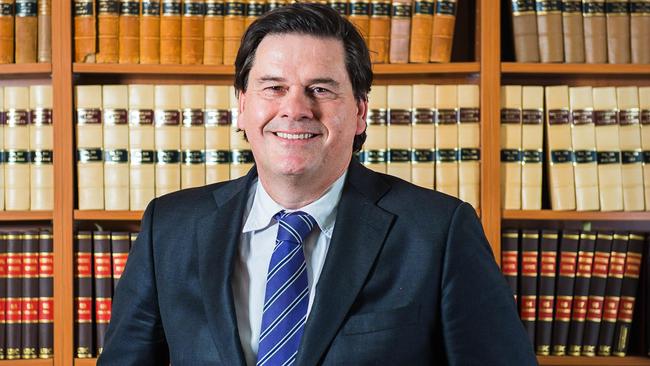
Gas an ‘energy source of the past’
Environment Victoria CEO Jono La Nauze said the reform was a “vital step that would help Victoria achieve its climate targets and kick our expensive gas addiction”.
“Victoria is the largest user of gas in homes, so it is particularly significant that we will be the first state to end new connections,” he said.
Mr La Nauze said the long-term expectations were that gas prices would keep rising and it “simply makes no sense to keep connecting new homes to the energy source of the past”.
“As important as today’s announcement is, much more work remains to be done. We look forward to the Andrews government updating its Gas Substitution Roadmap later this year, which must include a clear plan for helping the two million Victorian homes already connected to gas to be retrofitted with efficient electric appliances.”
Environmental group Friends of the Earth Melbourne said the announcement was a “spectacular win”.
No More Gas campaigner Freja Leonard said: “It’s a clear statement that we don’t need gas to cook, heat our water or our buildings”.
Ms Leonard said the move showed exporters that investing in gas was “tying themselves to a sinking ship”.
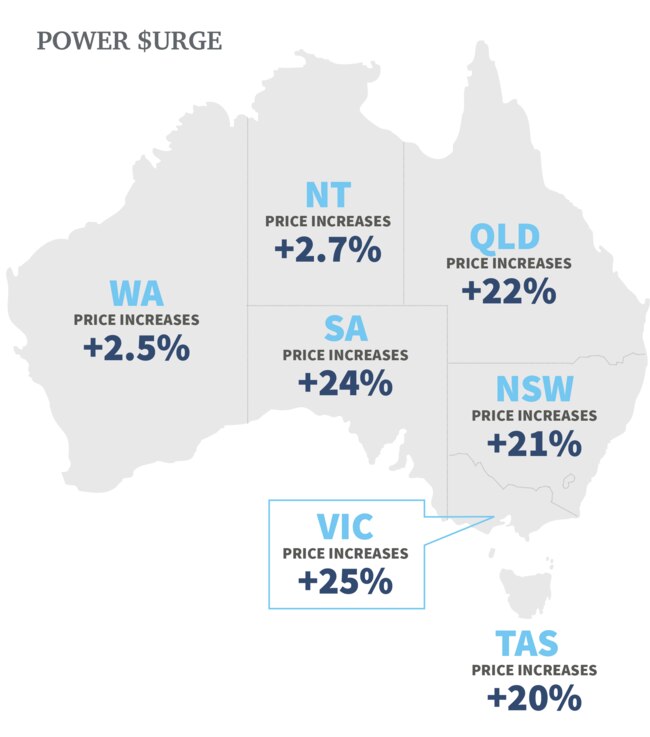
Energy Efficiency Council CEO Luke Menzel said while some people may have “bad memories” of old-style electric stoves, more Victorians were falling in love with the modern induction cooktop.
“Induction cooktops are high quality, lightning fast and great to cook with,” he said.
“Getting gas out of our kitchens is the healthy option for families, with evidence linking gas cooktops to respiratory conditions like asthma.
“Going all-electric means healthier homes, lower bills and a big step towards a net zero community.”
Meanwhile, the Property Council of Australia welcomed the move, saying the shift to all-electric new homes would reduce energy costs for Victorian households.
“We know that all-electric homes with efficient appliances combined with solar on the roof are much cheaper to run than homes with gas,” National Policy Director Frankie Muskovic said.
“Every new building built with gas will need to be retrofitted in the future, so we welcome this move from the Victorian government to avoid investment in new gas network infrastructure and focus on reducing energy bills, and providing cleaner, healthier homes for Victorians,” she said.
This is big news – from the 1st of January 2024, all new homes that require a planning permit will be all-electric! pic.twitter.com/QMo0jksiC7
— Lily D'Ambrosio MP (@LilyDAmbrosioMP) July 27, 2023
Rewiring Australia co-founder and chief scientist Saul Griffith said the Victorian gas ban was the first step to ensuring all Victorians got access to the financial benefits of electrification.
“Victoria has the most to gain from electrification, because it has the most households relying on gas and exposed to price gouging by international gas companies,” Mr Griffith said.
“Electrification is the fastest and most cost effective way to shave thousands of dollars a year from energy bills and lower our emissions. Decisions made around the kitchen table account for 42 per cent of emissions in the domestic consumption economy.”
Mr Griffith said the announcement was “brave legislation” from Lily D’Ambrosio, but would likely be “unpopular”.
Mr Griffith, whose commentary has guided energy security policies in the US, said Australians, and particularly Victorians, would do “extremely well” in preferencing full-electric home builds.
“Including cars switching to electricity, we are in for saving $3000-$4000 a year,” he said.
Even without an electric car, he estimated energy bill savings of $500-$1000 a year compared to older homes — potentially more where homes were also built with solar panels and if the owners typically ran heating throughout the day.
Mr Griffith said there were budget options for both gas and induction cooktops around the $500 mark, but most new homes would look to cooking installations closer to $2000 with better energy efficiency.
He added that heat pump water heaters were now also available for similar prices to gas water heaters, but noted there might be some extra wiring costs.
Mr Griffith said the switch would also make Victoria and Australia’s energy supply more secure, especially when paired with solar panels with a typical Victorian house likely to use a 10kW system that would cost about $10,000 to install upfront, less government rebates.
It would then pay for itself in a few years time through lower energy bills, particularly if owners also installed an about $1000 electric vehicle charging point in their garage or carport to maximise returns with an electric vehicle instead of one with a petrol or diesel engine.
“Australia could lead the world, we have perfect conditions with more expensive gas and petrol than in the USA and our rooftop solar costs about a third of what it does in America and half what it is in Germany and Europe,” he said.
“And we get plenty of sunshine.”
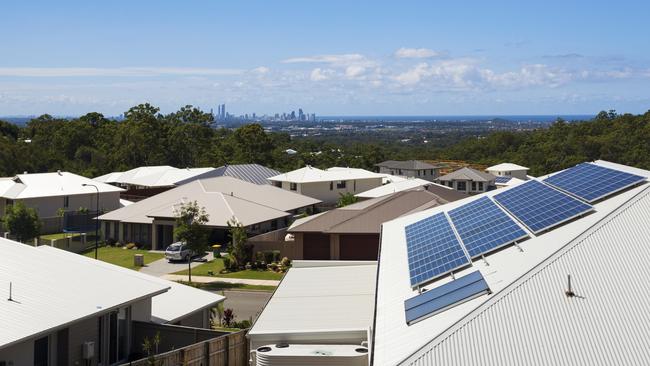
Urban Development Institute of Australia Victorian president Tom Trevaskis said the industry had been discussing discontinuing gas connections for some time, but they had not been aware of a January 1 mandate until Friday.
While supportive, they are now seeking to confirm with government details on the transition including impacts for homes that have already gone through planning processes and for new estates that have arranged for gas connections.
“It’s a big thing to work through, but it’s one that needs to be worked through,” Mr Trevaskis said.
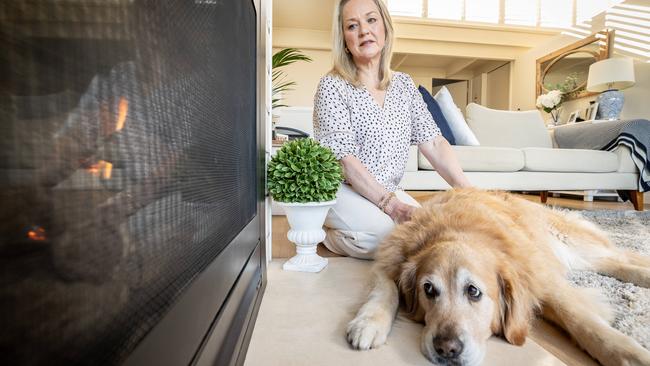
The Royal Australian College of General Practitioners (RACGP), who was one of 30 signatories to sign an open letter to Ms D’Ambrosio earlier this year calling for change, said banning gas would create healthier homes.
“Gas stoves expose people to respiratory irritants, which leads to a multitude of respiratory conditions, and research indicates this includes triggering asthma in children,” RACGP co-deputy chair Aadhil Aziz said.
“As the old saying goes, ‘An ounce of prevention is worth a pound of cure’ – and that’s true in both health and climate.”
Australian Retailers Association chief industry affairs officer Fleur Brown said the ban could result in discounts on gas appliances.
Ms Brown said while the ban will have an impact on retailers, it is “part and parcel of the transition towards sustainability”.
“Most retailers that sell gas appliances already sell electric appliances and will continue their transition towards electric options,” she said.
“As with the principle of supply and demand, gas appliances may be discounted as the ban on new connections nears.”
‘Out of the frying pan, into the fire’
But the Institute of Public Affairs slammed the move as a “direct attack on Victorian families, who are facing the ever-increasing dilemma to choose between whether to heat or eat”.
“Banning the use of gas is fundamentally out of step with community expectations and is another example of the ever-growing intrusion of the Victorian government into the day-to-day lives of families,” IPA deputy executive director Daniel Wild said.
“It has been misleading for the Victorian Energy Minister to simply blame the Ukraine conflict for gas price rises in the past. Her government has no one else to blame for out-of-control gas price rise but themselves, which has been more reckless than any other state in banning the development of this vital resource.”
Gas heating appliance manufacturer Seeley International slammed the move as “foolish and short-sighted”.
“Forcing people off gas causes more brown coal to be burned in our aging power stations, while increasing the strain on an already-fragile energy grid,” managing director Jon Seeley said.
“This is an indisputable fact that this government wilfully ignores in its blind, ideological pursuit of cheap ill-informed Green votes.
“The government is driving up emissions with this decision, not reducing emissions, and throwing Victorians out of the frying pan into the fire. Less gas equals more coal.”
Mr Seeley said it was “galling” for a government to “dictate how people live their lives, heat their homes and cook their meals”.
“Choice for Victorians, even within your own home, appears to be a threatened species,” he said.
“Banning things for all the wrong reasons will truly be the enduring legacy of the Andrews government.”
Australia’s largest plumbing industry association, Master Plumbers, said the announcement was made without consultation and lacked details.
Master Plumbers CEO Peter Daly said plumbing businesses design, install and maintain the critical infrastructure that Victorians rely on.
“For the government to drop an announcement like this without any substantive consultation is disappointing but unfortunately not surprising given previous changes to regulation of the industry which proved to be unworkable,” he said.
Mr Daly said it was difficult to understand how the government could spruik energy saving promises when it failed to engage with the businesses who help consumers make informed choices about heating, cooling, hot water and cooking.
“It would be entirely understandable if consumers are becoming cynical about more government announcements on future energy savings when all they see is their bills increasing and options being restricted,” he said.



